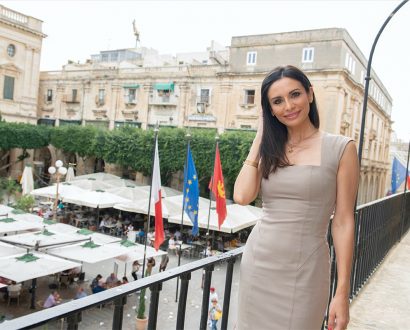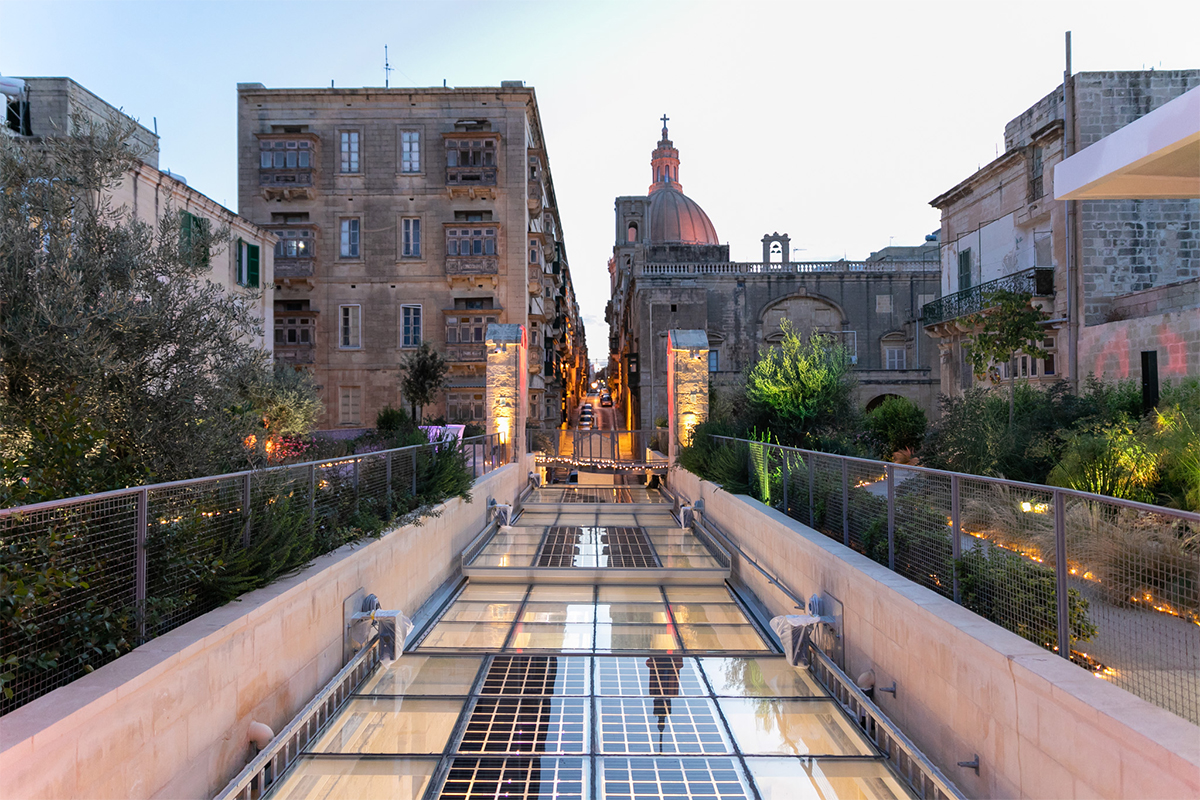Valletta Cultural Agency’s CEO on the power of collaboration

Since its inception – just over three years ago – as a legacy of the foundation responsible for implementing the European Capital of Culture initiative in Valletta, Malta in 2018, the Valletta Cultural Agency (VCA) has sought to strengthen the capital’s cultural life through the creation of an annual cultural program, developed in collaboration with artists, with other government institutions and also private entities. These range from events for moderately sized audiences such as outdoor music performances and art exhibitions, to mass events such as the annual New Year’s Eve national celebrations and the bi-annual Valletta Pageant of the Seas.
Unfortunately, the COVID-19 pandemic, lockdowns and the imposed decline in live events had a dramatic impact on the creative and cultural sectors. During this time of crisis, however, the Valletta Cultural Agency seized the opportunity to adapt and reinvent most of its in-person events to a virtual format on national television, reaching thousands of people.
One of the biggest projects the VCA has undertaken so far is the regeneration of a historic building and its surrounding area in an undervalued part of Malta’s capital, which had been left in a state of neglect for over half a century. The building was a finalist at the 2022 New European Bauhaus Awards, winner of the ‘City Landscape’ category of the international Premio – Concorso City_Brand & Tourism Landscape Awards by Paysage Topscape, and the winner of the Arts Council Malta Arts Award for Best Artistic Programme or Season (2020), among several others awards.
It has been transformed into what is today the Valletta Design Cluster; a new creative, cultural and community space dedicated to design where independent creatives, public entities and voluntary organisations can learn together and share their knowledge. This project also serves to create a new public space through a roof garden, the first of its kind in the Maltese Islands.

"It is testament – if ever one was needed – to the significant role culture can and should play in transforming the streets and neighbourhoods where people live."
"It is important to underline that the regeneration of this area goes beyond the building itself. It is testament – if ever one was needed – to the significant role culture can and should play in transforming the streets and neighbourhoods where people live," the CEO of VCA, Catherine Tabone shares.
"The part the VCA plays in the country’s arts and culture scene is indeed remarkable, but it is also evolutionary in that we remain committed to continue building upon the successes of the past three years while embracing the exciting possibilities of the future," she says. "Having said so, as CEO, it has become even clearer to me that while the challenges of the post-pandemic era are significant, the prospect of brighter days for the arts and culture are just as great."
The strategy for VCA is to forge more partnerships and collaborations similar to those that it already has with the Academia Nazionale di Santa Cecilia and with the Malta Tourism Authority, the Malta Philharmonic Orchestra, Festivals Malta and Teatru Manoel, in the future.
My efforts are paired with each and every individual employee’s strengths, input, contributions and ongoing commitment to the Agency’s vision for Valletta. This ensures that we can approach the years ahead confident in our ability to achieve more, and reach further," Catherine says. "Above all, we want to make sure that every single resident and visitor to Valletta continues to have access to a remarkable range of high-quality cultural experiences."
"I believe that if the COVID-19 pandemic has taught us anything, it is that we cannot live without culture and creativity."
"I believe that if the COVID-19 pandemic has taught us anything, it is that we cannot live without culture and creativity."
While nothing compares to the unique experience of a live concert or the profound encounter with art in museums and exhibition spaces, many people around the world resorted to music, the arts and culture to help them get through the on-and-off lockdowns and stay connected.
"Isn’t it fascinating how just listening to your favourite music playlist can turn a bad day around? These turbulent times seem to be over – at least for the time being – and now that Malta has returned to complete normality with events reopening to capacity crowds, the yearning desire for collective cultural joy has never been more evident," Catherine says.
"Simultaneously, the VCA remains as committed as ever to continue providing the public with more high-quality cultural events, not only to satisfy these desires, but also because we believe in the power of the arts and culture in binding together not only individuals and entire societies and peoples.
"Many thought that the world of arts and culture would never be the same after the pandemic. The truth is that art and culture, through their champions, helped us emerge from this trauma and eventually injected life back in our cities, streets, theatres, museums and open spaces," she continues.
"When cultural entities work closely with artists and with their counterparts, the events themselves become richer, more relevant, and eventually deliver greater benefits."
"This is why I believe more systems that sustain this sector need to be created. Like any other sector or profession – but perhaps more than any other – art, culture and creativity face so many challenges, and it is thus a duty to ensure that artists, creatives and producers are adequately supported."
The arts, culture, and creativity can help us shape a better and a healthier future; this is why the VCA remains as committed as ever to its belief in the role they play in building a more just, a more open-minded and a more human world.
"As the world becomes increasingly connected, it is crucial that we continue to build on the power of collaboration," she explains. "When cultural entities work closely with artists and with their counterparts, the events themselves become richer, more relevant, and eventually deliver greater benefits."
About Catherine Tabone
Catherine Tabone is the Chief Executive Officer of the Valletta Cultural Agency. A graduate of the Universities of Malta and Cambridge, over the years she occupied various managerial positions within the Public Administration of Malta and was also curator of the National Museum of Ethnography.
She was appointed Director for Culture in 2013 with the responsibility of providing policy, direction and advice on the arts, heritage and audio-visuals. In this role, she was directly involved in high-level discussions relating to these areas held as part of Malta’s Presidency of the Council of the European Union. Moreover, she spearheaded Malta’s ratification of the UNESCO Convention for the Safeguarding of Intangible Cultural Heritage and led high-level, historic collaboration initiatives between Malta and the Holy See. More recently, she held the position of Executive Director at the Valletta 2018 Foundation, being responsible for the implementation of the European Capital of Culture initiative in Malta.
Catherine is a published researcher and was, for many years, a member of the Board of the Faculty of Arts at the University of Malta. She currently sits on various Boards and Committees related to culture and the arts. She is also active in a local NGO promoting the valorisation of historic sites.